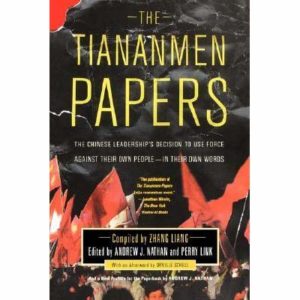Democratic ideals are the only leverage that the United States and its Western allies have when it comes to pressuring a powerful China, former NATO Secretary General Anders Fogh Rasmussen tells Newsweek.
“The only leverage we have vis-à-vis China is if all the world’s democracies could really unite and stand together and make a formal and informal alliance of democracies,” he said. “Together, the world’s free societies represent almost 60% of the world economy. That’s a formidable force that will create respect if we can unite, and I think that’s the only leverage we have.”
The Biden administration has wisely pushed back on the framing of US-China relations as a new “Cold War,” argues Harvard professor Joseph S. Nye Jr.
China manipulates the system of deep economic and political interdependence to support its authoritarian government and to influence opinion in democracies to counter and pre-empt criticism, he writes for the Times. For evidence of that, we just have to look at China’s economic punishment of our allies Norway and Australia for daring to knock China on human rights.

National Endowment for Democracy (NED)
A three-dimensional strategy would recognize and respond to the fact that these actions taken by China create opportunities for us to take supportive steps that will in turn increase our influence, Nye concludes.
But a cold war is already under way. The question is whether Washington can deter Beijing from initiating a hot one,
Get ready for the “terrible 2020s”: a period in which China has strong incentives to grab “lost” land and break up coalitions seeking to check its advance, they write for the Atlantic:
Beijing possesses grandiose territorial aims as well as a strategic culture that emphasizes hitting first and hitting hard when it perceives gathering dangers. …. An authoritarian CCP, always mindful of its precarious domestic legitimacy, would not want to concede defeat even if it failed to achieve its initial objectives. And historically, modern wars between great powers have more typically gone long than stayed short.
The implicit assumption of ‘realists’ like John Mearsheimer who seek to placate Beijing is that China’s power will continue, but that is far from certain, adds Tuft University’s Daniel Drezner. China is, in the words of Denny Roy, a “low productivity superpower,” he writes for the Post:
 Most of China’s recent economic growth has been fueled by debt and very little of it by productivity gains. Future growth looks more daunting, given the distortions under Xi Jinping’s failed reform efforts. As Hal Brands and Michael Beckley recently noted in Foreign Policy, “any country that has aged, accumulated debt, or lost productivity at anything close to China’s current pace has lost at least one decade to near-zero economic growth.”
Most of China’s recent economic growth has been fueled by debt and very little of it by productivity gains. Future growth looks more daunting, given the distortions under Xi Jinping’s failed reform efforts. As Hal Brands and Michael Beckley recently noted in Foreign Policy, “any country that has aged, accumulated debt, or lost productivity at anything close to China’s current pace has lost at least one decade to near-zero economic growth.”
The Chinese Communist Party takes history seriously. State-sponsored studies have examined the rise and fall of great powers and the causes of the Soviet collapse, notes Brands, a senior fellow at the American Enterprise Institute and Professor of Global Affairs at Johns Hopkins SAIS.
Beijing learned from that event — as well as from the Tiananmen Square crisis in 1989 — never to allow splits within the party, to enforce ideological loyalty, and to keep a watchful eye on dissent before it gets out of control, he writes for Bloomberg Opinion. The reason the Soviet Union disintegrated, President Xi Jinping said in 2013, was that “nobody was man enough to stand up and resist” the deadly trend toward democracy. But China is now un-learning some of the most important lessons it gleaned from the U.S.-Soviet conflict, he warns.
With China’s political and economic future becoming increasingly uncertain, banks, securities companies and asset management businesses should carefully weigh the risks to avoid planting the seeds of future losses in their rush to grow, Nikkei Asia adds. With Beijing facing international criticism for violating human rights and suppressing democracy, financial institutions need to take all possible precautions against damaging their credibility by doing business in China.

National Endowment for Democracy (NED)
‘To Make Us Slowly Disappear’: The Chinese Government’s Assault on the Uyghurs. The United States Holocaust Memorial Museum’s Simon-Skjodt Center for the Prevention of Genocide hosts a discussion of its forthcoming report. Speakers: Sara J. Bloomfield, Director, USHMM; Rachel (Rae) Goldfarb, Holocaust Survivor and Museum volunteer; Senator Marco Rubio, Member, Senate Foreign Relations Committee; Former Chair, Congressional-Executive Commission on China; Congressman Jim McGovern, Co-Chair, CEC on China; Co-Chair, Tom Lantos Human Rights Commission; Dolkun Isa, President, World Uyghur Congress.
Panel: Gulchehra Hoja, Uyghur Journalist, Radio Free Asia; Sareta Ashraph, Senior Legal Consultant, Simon-Skjodt Center; Evan Osnos, The New Yorker; Naomi Kikoler (moderator), Director, Simon-Skjodt Center. 12:00 pm ET. November 9, 2021. RSVP
Democracy is the “only leverage” West has against China, former NATO chief says https://t.co/8t53pt4iRD
— Democracy Digest (@demdigest) November 3, 2021







